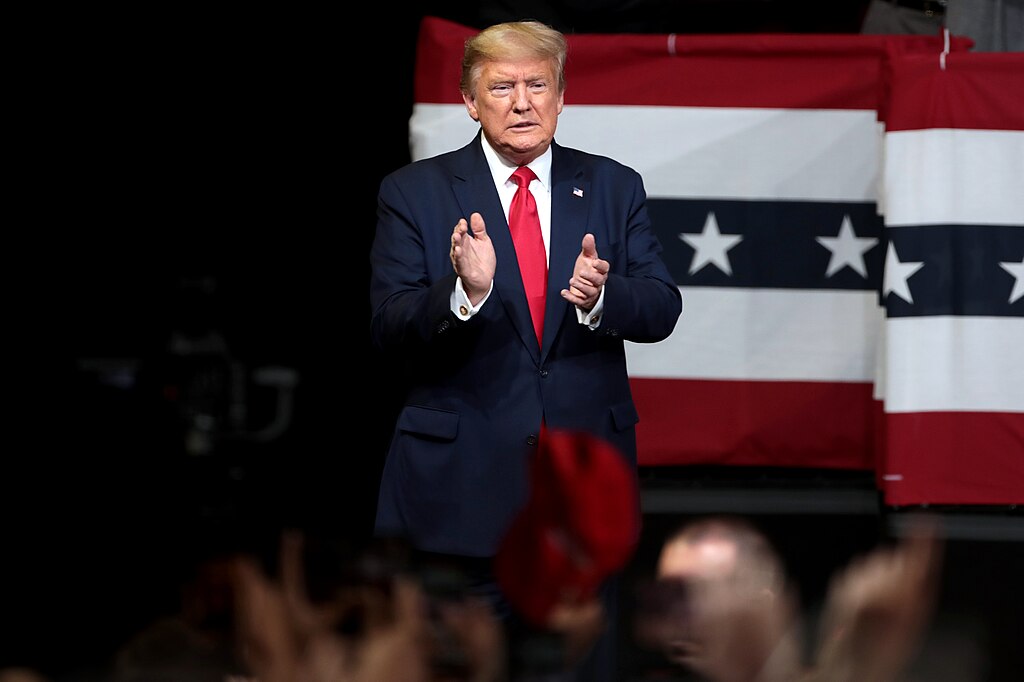President-elect Donald Trump and his advisors are deliberating a strategy to deploy U.S. special forces into Mexico to combat drug cartels, according to a report by Rolling Stone. This "soft invasion" would involve covert operations aimed at dismantling cartel leadership and infrastructure.
Strategic Considerations for Covert Operations
The proposed plan includes deploying American special forces to conduct targeted assassinations of cartel leaders, utilizing drone strikes on drug labs, and engaging in cyber warfare to disrupt cartel networks. These measures are intended to curb the flow of illegal narcotics, particularly fentanyl, into the United States. Trump has reportedly expressed willingness to inform the Mexican government that failure to address the drug trafficking issue could prompt unilateral U.S. military action.
Support from Key Political Figures
Several of Trump's cabinet selections and political allies have publicly endorsed the idea of military intervention in Mexico. Senator Marco Rubio, nominated for Secretary of State, has supported deploying U.S. troops to combat drug cartels, contingent upon cooperation with the Mexican government. Similarly, Pete Hegseth, chosen to lead the Pentagon, has advocated for precision military actions against cartels, describing them as "terrorist-like organizations poisoning our population."
Historical Context and Policy Implications
This approach marks a significant shift in U.S. foreign policy toward Mexico. During his previous term, Trump suggested missile strikes against cartel operations in Mexico, though such actions were not implemented. The current proposal for a "soft invasion" reflects a more aggressive stance, raising concerns about potential diplomatic repercussions and the sovereignty of Mexico.
Public Reaction and Social Media Discourse
The revelation of these plans has sparked a range of reactions on social media platforms. Twitter user @PolicyWonk2024 commented, "Initiating military operations in Mexico could lead to severe diplomatic fallout and unintended consequences." In contrast, @SecureBordersNow expressed support, stating, "It's about time we take decisive action against the cartels threatening our nation's safety."
Another user, @HumanRightsWatchdog, raised ethical concerns: "Covert assassinations set a dangerous precedent and undermine international law." Conversely, @PatriotFirstUSA tweeted, "Protecting American lives from the scourge of drugs justifies strong measures, even if controversial."
Additionally, @DiplomacyMatters emphasized the importance of collaboration: "Working with Mexico through diplomatic channels is essential; unilateral action could destabilize the region." Meanwhile, @WarHistoryBuff noted, "Interventions like these have complex histories; we must tread carefully to avoid past mistakes."
As the Trump administration prepares to assume office, the consideration of a "soft invasion" into Mexico underscores the complexities of addressing transnational drug trafficking. The potential deployment of U.S. special forces on Mexican soil raises questions about the balance between national security interests and international diplomatic relations. The unfolding discourse will likely influence the administration's final decision on this contentious issue.



 Russia Downs 220 Ukrainian Drones in Major Air Defence Operation, Moscow Targeted
Russia Downs 220 Ukrainian Drones in Major Air Defence Operation, Moscow Targeted  U.S. Plans 4,500 Monthly Refugee Admissions for White South Africans Amid Policy Debate
U.S. Plans 4,500 Monthly Refugee Admissions for White South Africans Amid Policy Debate  Venezuela Oil Exports to Reach $2 Billion Under U.S.-Led Supply Agreement
Venezuela Oil Exports to Reach $2 Billion Under U.S.-Led Supply Agreement  Trump Orders Federal Agencies to Halt Use of Anthropic AI Technology
Trump Orders Federal Agencies to Halt Use of Anthropic AI Technology  U.S. Signals Openness to North Korea Talks as Kim Jong Un Calls for Shift in “Hostile Policy”
U.S. Signals Openness to North Korea Talks as Kim Jong Un Calls for Shift in “Hostile Policy”  Germany and China Reaffirm Open Trade and Strategic Partnership in Landmark Beijing Visit
Germany and China Reaffirm Open Trade and Strategic Partnership in Landmark Beijing Visit  NYC Mayor Zohran Mamdani Meets President Trump to Tackle Housing Crisis and ICE Detentions
NYC Mayor Zohran Mamdani Meets President Trump to Tackle Housing Crisis and ICE Detentions  Ecuador Raises Tariffs on Colombian Imports to 50% Amid Border Security Dispute
Ecuador Raises Tariffs on Colombian Imports to 50% Amid Border Security Dispute  Melania Trump to Chair UN Security Council Meeting as U.S. Assumes Presidency
Melania Trump to Chair UN Security Council Meeting as U.S. Assumes Presidency  Trump Floats Ted Cruz for Future U.S. Supreme Court Nomination
Trump Floats Ted Cruz for Future U.S. Supreme Court Nomination  Denver Mayor Orders Police to Protect Protesters, Restricts ICE Access to City Property
Denver Mayor Orders Police to Protect Protesters, Restricts ICE Access to City Property  Top Democrat Accuses DOJ of Withholding FBI Records in Trump-Epstein Investigation
Top Democrat Accuses DOJ of Withholding FBI Records in Trump-Epstein Investigation  Federal Judge Blocks Virginia Social Media Age Verification Law Over First Amendment Concerns
Federal Judge Blocks Virginia Social Media Age Verification Law Over First Amendment Concerns  Trump Media Weighs Truth Social Spin-Off Amid $6B Fusion Energy Pivot
Trump Media Weighs Truth Social Spin-Off Amid $6B Fusion Energy Pivot  Pentagon to Halt Ivy League Programs for U.S. Military Officers Starting 2026
Pentagon to Halt Ivy League Programs for U.S. Military Officers Starting 2026  Trump Floats “Friendly Takeover” of Cuba as Rubio Reportedly Engages in Talks
Trump Floats “Friendly Takeover” of Cuba as Rubio Reportedly Engages in Talks  UN Rapporteur Francesca Albanese Condemns “Toxic” Attacks Amid Calls for Resignation
UN Rapporteur Francesca Albanese Condemns “Toxic” Attacks Amid Calls for Resignation 



























